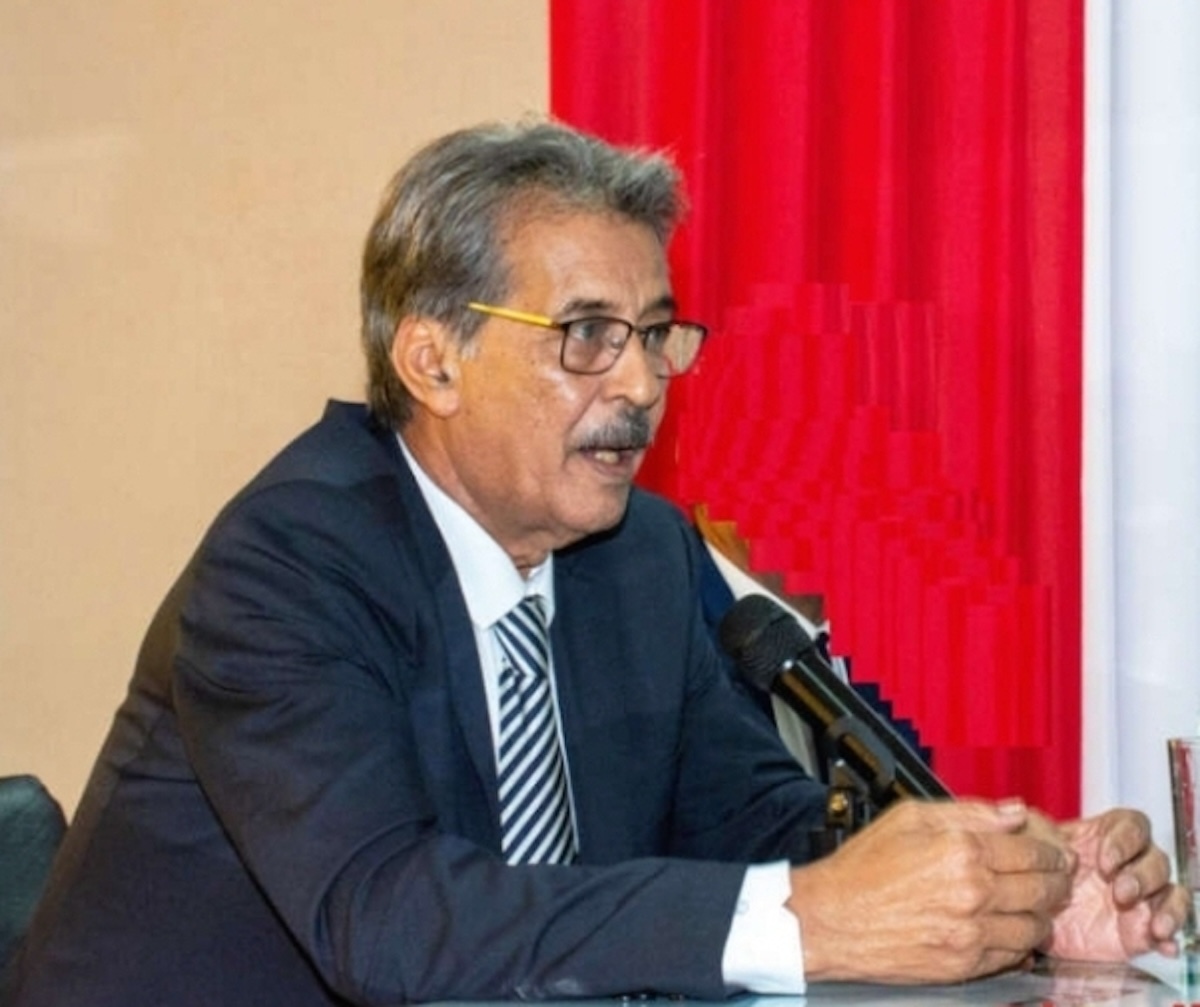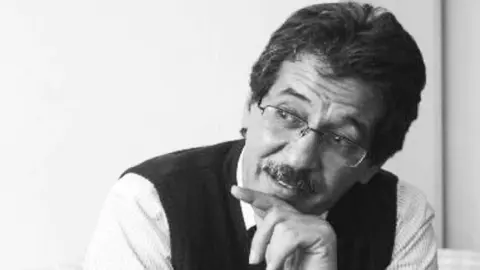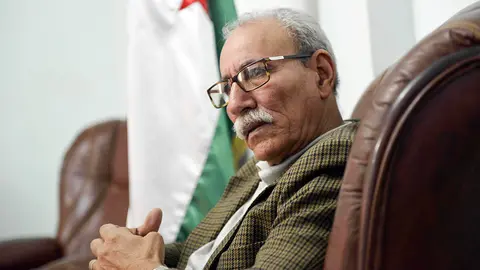Hach Ahmed Baricalla highlights the decline of the Polisario Front

‘The Polisario has entered a gradual decline’. This is one of the strong statements made by Hach Ahmed Baricalla, first secretary of the Movement Saharawi for Peace (MSP), in an interview with Jeune Afrique, at a time when Saharawi independence is in decline following the withdrawal of support from the Republic of Panama for the Saharawi Arab Democratic Republic (SADR).
Panama recently decided to suspend diplomatic relations with SADR, which is noteworthy because the American country was the first to officially recognise the Sahrawi entity, which is considered a pseudo-state by the vast majority of nations in the international arena.
Morocco sees its territorial integrity as vital and considers Western Sahara as part of its southern provinces, so any claim to independence in the area is rejected by the Moroccan kingdom. King Mohammed VI attached great importance to Panama's decision and, in fact, sent a message of thanks to Panamanian President José Raúl Mulino Quintero for the decision.
A month ago, Ecuador also took the step of withdrawing its support for the Sahrawi independence fighters of SADR and the Polisario Front. Meanwhile, more than 100 countries support Morocco's Autonomy Plan for Western Sahara, including prominent nations such as the United States, France, the United Arab Emirates, Israel, Germany and Spain, which consider the Moroccan proposal to be the most serious, credible and realistic way of resolving the Sahrawi dispute.
Morocco proposes a formula of broad autonomy for Western Sahara under Moroccan sovereignty, respecting the resolutions of the United Nations (UN), with the aim of giving the Sahrawi authorities a large measure of self-government and developing the territory to the maximum in all areas.
Thus, the current scenario marks a point of decline for SADR and the Polisario Front's affinity group. ‘Under the current leadership, the Polisario has entered a gradual decline. Many people have left the camps to settle in Mauritania, in Sahrawi towns administered by Morocco, but also in some European countries, such as Spain and France, to benefit from stateless status. People are no longer seduced or held back by the radical rhetoric associated with wars of liberation and revolutionary projects’, said Hach Ahmed Baricalla in an interview with Jeune Afrique.

The lack of support for the Polisario Front could lead the Saharawi separatist entity to opt more for the military and violent route it has taken on other occasions, since the political formula is of little use to it, as Hach Ahmed Baricalla explained, stressing on this point the clear decline of the Saharawi separatist entity.
‘It doesn't take an expert to see a clear setback in the Polisario's strategy. The lack of discernment in the choice of targets, without distinguishing between military installations and urban areas, could lead the movement to be classified as a terrorist group if collateral damage and civilian deaths are not avoided’, Hach Ahmed pointed out in the interview with Jeune Afrique. ‘Since November 2020, the Polisario has lost all its positions in the territory. The Guerguerat crisis and the unilateral breaking of the ceasefire have created a new balance of forces unfavourable to the Polisario, forcing it to abandon all its positions in the territory and forcing its inhabitants to return to the refugee camps’, he indicated.
The MSP leader pointed out that the Polisario Front has lost capacity and firepower after withdrawing its heavy equipment. ‘Now it has only small units, equipped with light equipment, which have difficulties in approaching the Moroccan positions on the defensive wall, under the threat of drones. The intervention of Moroccan drones and the clumsiness and recklessness of the Polisario leadership have been decisive factors in this situation,’ he explained.
Hach Ahmed Baricalla also referred to the position of neighbouring Mauritania, as a neutral country involved in this confrontation over Western Sahara. ‘It is logical that the Mauritanian authorities are uncomfortable with the proximity of unstable and insecure areas. The Mauritanian authorities are making great efforts to prevent warlike actions from affecting their territory and jeopardising their neutrality. This is no easy task, especially as they face similar challenges in the Sahel along their border with neighbouring Mali. Fortunately, the Mauritanian authorities have not restricted civilian movements and Malian refugees enjoy shelter and protection. Mauritania remains an island of peace, a beacon between two troubled oceans,’ argued Hach Ahmed Baricalla.
‘Mauritania is very careful to maintain its neutral position on the Western Sahara issue, and I don't think it will budge as long as tensions between Algeria and Morocco persist’, added Hach Ahmed Baricalla. The political rivalry between Morocco and Algeria on a number of issues must be taken into account here, particularly with regard to Western Sahara, as Algeria supports the Polisario Front and SADR in their desire to hold a referendum on independence for the Sahrawi population, something that threatens the territorial integrity claimed by the Moroccan kingdom.
As for the comments of various analysts on the alleged support of the Islamic Republic of Iran for the Polisario Front, Hach Ahmed Baricalla is not sure about this and considers that, if confirmed, it would be bad news for regional security and even for the Saharawis. ‘I am not sure that the Polisario has the explicit military support of Iran. The possibility of Iranian connections and interference, similar to those with other armed groups such as Hezbollah, Hamas and the Houthis in Yemen, would create a disastrous scenario with unpredictable consequences for the region. This would be the ultimate curse for the Saharawis’, the MSP leader explained.

The MSP stands for an alternative path for political negotiation outside the two opposing poles of Morocco and the Polisario Front, in support of the political efforts of Staffan de Mistura, the UN Secretary General's personal envoy for Western Sahara, to bring the parties concerned to an agreement.
‘There is no doubt that the Sahara question is at a crucial moment, on which the future of MINURSO will depend, but also the mission of the envoy Staffan de Mistura and the role of the UN in the resolution of the conflict. In short, it is a crossroads. But perhaps also an opportunity’, indicated the MSP leader, for whom his political formation presents what could be a ‘road map, with the Moroccan proposal of 2007 as a reference, based on a moderate and realistic approach’. ‘There is still much room to negotiate and define the relationship of interdependence between the central government and the Saharawi entity, including competences, resources, reciprocal guarantees and arbitration mechanisms. This is a set of elements drawn from the Iraqi Kurdistan model, Spanish models, in particular the Basque model, among other references. Some governments and interested parties have asked us for copies of the draft,’ explained Hach Ahmed Baricalla.










